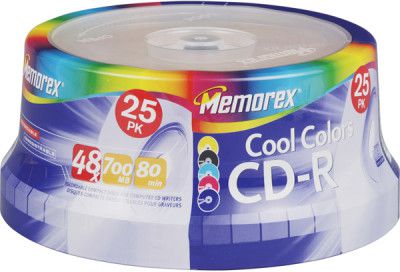From our front-page news:
There are many media executives around the world who would do anything to believe otherwise, but according to a recent report done by Frank N. Magid Associates, Internet users who pirate media, whether it be music, movies or what-have-you, spend more of their hard-earned money on media products. These products can include anything from going to see a movie, to purchasing a new HDTV, to buying a game console.
I'm sure there are many who won't, but I wholeheartedly agree with this research. I admit that in the past, I used to be a rather rampant P2P'er, downloading a fair amount of music over time. Today, I don't usually download anything unless one of my favorite artists' album gets leaked a few weeks early, but in the end, they still get my money when the actual product hits the market.
For me, P2P was a game-changer where discovering new music was concerned. Before the likes of Last.fm, P2P was the absolute best way to sample new music - especially music that's not normally played via convenient means, unless it's mainstream. As I look over at my music collection, I see a few artists that I would have likely never discovered had I never took a chance on downloading their album. For a few of those bands, I now own every-single album they've ever made (The Thermals, for example).
Today, rather than download random albums via P2P, I use services like Last.fm to discover new artists and then YouTube to hear the music. It's at that point that I can decide whether to move forward with a purchase or not. That setup sure works better than the foolish 30s low bit-rate clips of music that services like iTunes avail you, I can tell you that much. While I became bored of P2P, many haven't (obviously), and I still believe that people who get to actually sample what they want to buy first are going to spend more than someone who doesn't have such a capability.

We compared a random set of Vuze users with a national sample of internet users ages 18 to 44, and results revealed that users of P2P technology spend considerable money on traditional media and entertainment. They are, in fact, important and valued customers of the traditional media companies. Our survey shows that the P2P user attends 34% more movies in theaters, purchases 34% more DVDs and rents 24% more movies than the average internet user. The P2P user owns more HDTVs and is more likely to own a high-def-DVD player, too.
Source: Advertising Age
I'm sure there are many who won't, but I wholeheartedly agree with this research. I admit that in the past, I used to be a rather rampant P2P'er, downloading a fair amount of music over time. Today, I don't usually download anything unless one of my favorite artists' album gets leaked a few weeks early, but in the end, they still get my money when the actual product hits the market.
For me, P2P was a game-changer where discovering new music was concerned. Before the likes of Last.fm, P2P was the absolute best way to sample new music - especially music that's not normally played via convenient means, unless it's mainstream. As I look over at my music collection, I see a few artists that I would have likely never discovered had I never took a chance on downloading their album. For a few of those bands, I now own every-single album they've ever made (The Thermals, for example).
Today, rather than download random albums via P2P, I use services like Last.fm to discover new artists and then YouTube to hear the music. It's at that point that I can decide whether to move forward with a purchase or not. That setup sure works better than the foolish 30s low bit-rate clips of music that services like iTunes avail you, I can tell you that much. While I became bored of P2P, many haven't (obviously), and I still believe that people who get to actually sample what they want to buy first are going to spend more than someone who doesn't have such a capability.

We compared a random set of Vuze users with a national sample of internet users ages 18 to 44, and results revealed that users of P2P technology spend considerable money on traditional media and entertainment. They are, in fact, important and valued customers of the traditional media companies. Our survey shows that the P2P user attends 34% more movies in theaters, purchases 34% more DVDs and rents 24% more movies than the average internet user. The P2P user owns more HDTVs and is more likely to own a high-def-DVD player, too.
Source: Advertising Age
